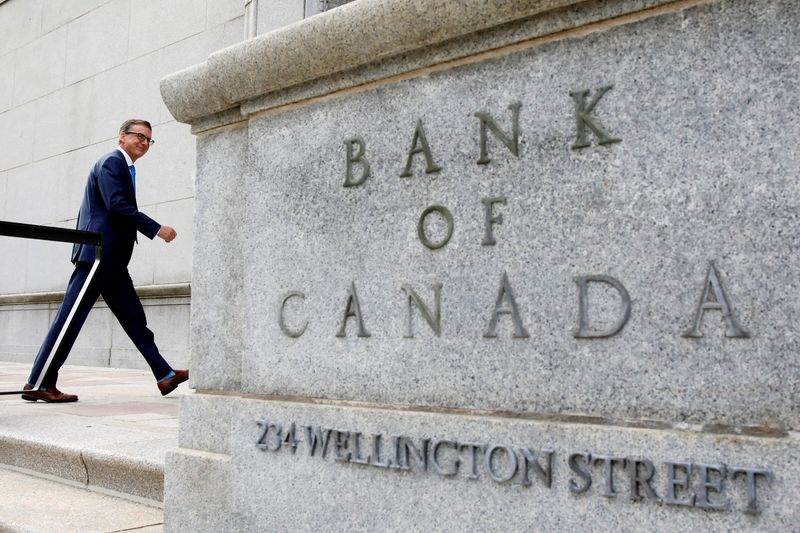Bank of Canada will aggressively continue to raise the rate in December-Reuters
2022.12.01 08:47
[ad_1]

Bank of Canada will aggressively continue to raise the rate in December-Reuters
Budrigannews.com – According to a Reuters poll, on December 7, the Bank of Canada will increase the key rate to 4.25%. This will end the nine-month campaign of the Central Bank to tighten policy.
As the full effect of rising rates remains palpable, the fall in the real estate market, as well as one of the highest-ranking household debt-to-income ratios in the world, exposes the economy, which, compared to the third quarter, grew by 2.9% year-on-year. As of October 6, 9, inflation still exceeds the Central Bank’s indicator by two times.
In this regard, the economist and the market are not sure that the British bank, by raising rates in March by 350 basis points, will take another half-point step to complete an aggressive campaign before waiting for a recession.
According to the current expectations of the US Federal Reserve meeting in December, slightly more than half of the 30 economists surveyed in recent days expected an increase of half a percent to 4.25%.
According to 14 applications, the Bank of England will reduce the rate by 25 basis points. The markets have estimated the probability of a rate hike by 25 percent – this will be the third consecutive increase in the amount of rates by politicians, reaching a peak of July 100.
Andrew Grantham, an economist at CIBC, said that rising inventories and weak domestic demand should be evidence of a weakening of domestic inflationary pressures in the future.
“As a result, we are still waiting for the final increase of the 50 bbp rate to a peak of 4.25% until 2023, when the Bank will depart in 2023 in order to see how the economy will cope with this higher percentage ratio,” the report says. “In the end,” he said.”
“Scotiabank, CIBS and the National Bank of Canada expected an increase of fifty points without raising them.” In early 2023, BMO plans to increase 50 and another 25 basis points, and RBC forecasts an increase of 25 basis points.
At the same time, personal spending and investing in real estate fell in the last quarter and a separate Reuters survey group showed that on average real estate prices will fall by 17.5 percent, which is about twice as high as in the financial crisis of 2008-2009.
Although there was no consensus on when the overnight rate would reach its maximum point, about 90 people or 26 out of 29 respondents predicted that the final rate could reach a maximum point of 4.25% or higher and means that the BOC could end in December, and if not, soon after.
At the same time, the risks are projected to be shifted to a higher rate, so the Fed expects to raise federal funds rates at least 4.75-5.0 at the beginning of this year.
Since the expansion will be higher in the coming year than expected at the Bank of England, 10 financial market experts who answered an additional question believe that a higher rate also implies that the rate will reach higher levels and later than expected now.
In October, at a meeting of the head of the Bank of England Timothy Macklem, it became clear that this campaign to increase rates was over. He told reporters at a press conference: “We are closer, but we have not reached the goal.”
Kerolin Rogers, Senior Deputy Governor of the Bank of England NYSE: Recently stated that high mortgage arrears remain the main cause of unrest, and a higher interest rate is starting to slow down the economic situation.
Seven people who answered additional questions believed that the degree of concern expressed by the BOT was approximately correct.
According to the economist of the London Bank Sebastian Lavoie: “The latest research by the London Bank on household vulnerability and flexible mortgage rates confirms that the final rate of the London Bank will eventually be at least 50 basis points than the US Federal Reserve.”
[ad_2]








